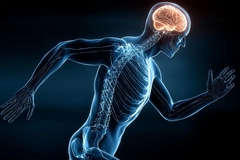
- Industry news
Industry news
Trending now
- Category news
- Reports
Trending now
- Key trends
Trending now
- Multimedia
Multimedia
Trending now
- Journal
- Events
Trending now
- Suppliers
Suppliers
Trending now
- Home
- Industry news
Industry news
Trending now
- Category news
- Reports
Trending now
- Key trends
Trending now
- Multimedia
Multimedia
Trending now
- Events
Trending now
- Suppliers
Suppliers
Trending now
NCKU Researchers Find Citrus Extract as a Potent Antineoplastic Agent

Polymethoxyflavones (PMFs), found exclusively in the Citrus genus, particularly in the peel of sweet oranges and mandarin oranges, have a broad spectrum of biological activities including anti-carcinogenic, anti-inflammatory, and anti-tumor activities.
13/01/09 NCKU Associate Professor Ying-Jan Wang from the Department of Environmental and Occupational Health of Medical College has led a research team to conduct a series of experiments on mice for ascertaining that 5-OH-HxMF (5-hydroxy-3,6,7,8,3',4'- hexamethoxyflavone), a kind of polymethoxyflavones extracted from Citrus genus, has been efficacious in inflammation and neoplasia. This research achievement has been warranted for its publication in "Carcinogenesis," a prestigious academic journal with foci on cancer biology, molecular epidemiology, cancer prevention and carcinogenesis.
The research team, led by Professor Wang, has experimented on small mice model to screen anti-cancer components in food as well as finding possible carcinogens caused by environmental poisons, since 2003. Professor Wang has studied the effect of 5-OH-HxMF on the expression of inductible nitric oxide synthase (iNOS) and prostaglandin-endoperoxide synthase 2 (COX-2, cyclooxygenase-2), both kinds of neoplasia-induced factor, on mouse skin to explore underlying molecular working mechanisms. Results inferred from small mice's skin reaction to 5-OH-HxMF, extracted from Citrus genus, shed light on an account for the basic molecular mechanisms of iNOS and COX-2, which is known to play a pivotal role in colon tumorigenesis.
Polymethoxyflavones (PMFs), found exclusively in the Citrus genus, particularly in the peel of sweet oranges (Citrus sinensis) and mandarin oranges (Citrus reticulate), have a broad spectrum of biological activities including anti-carcinogenic, anti-inflammatory, and anti-tumor activities. The intake of citrus fruit has been suggested for prevention of the development of certain human cancers. It is also commonly recognized that cancer induction can be prevented by ingestion of certain food phytochemicals. Flavonoids in citrus fruits and juices have been said to be one of the most prominent cancer-preventing agents. PMFs have higher permeability through the small intestine and are readily absorbed into the human blood circulatory system.
The recent successful isolation of 5-hydroxy-3,6,7,8,3',4'-hexamethoxyflavone (5-OH-HxMF) extracted from sweet orange peel and the reported biological activities of other PMFs have stimulated Professor Wang to further study anti-inflammatory and anti-tumor capabilities of polymethoxyflavones.
According to Professor Wang, it has been known that inflammation is causally linked to carcinogenesis and acts as a driving force in premalignant and malignant transformation of cells. The research team has tested the anti-inflammatory efficacy of 5-OH-HxMF in mouse skin, and investigated the inhibitory effect of 5-OH-HxMF on mouse skin tumor promotion using a two-stage carcinogenesis model including tumor incidence, multiplicity, and volume. "We found that the topical application of 5-OH-HxMF can effectively inhibit the transcriptional activation of iNOS and COX-2 mRNA and protein in mouse skin stimulated by carcinogens as well as to suppress the binding possibilities of carcinogenic substances with DNA," said Professor Wang.
iNOS has been shown to be involved in COX-2 regulation, especially pivotal in colon tumorigenesis. Empirical observations suggest that iNOS may exacerbate tumorigenesis. According to a recent article published onJournal of Carcinogenesis, the topical application of 5-OH-HxMF can effectively suppress protein expression of iNOS and COX-2 mRNA and reverse these two inflammation-caused proteins back to normal. The anti-cancer efficacy of 5-OH-HxMF can be possibly applied into all cancer treatment. This certainly indicates possibility of its further development as a food additive or a supplement with a function of anti-inflammation and anti-cancer.
Professor Wang also evaluated the in vivo anti-inflammatory and anti-tumor promoting properties of 5-OH-HxMF by measuring epidermal thickness, leukocyte infiltration, and proliferating rate of cell-nuclear-antigen-stained cells after a skin cancer formed on mouse skin. They found that 5-OH-HxMF significantly inhibited mouse skin inflammation by decreasing inflammatory parameters.
Professor Wang added that 5-OH-HxMF also significantly inhibited DMBA/TPA-induced skin tumor formation by reducing the tumor incidence and tumor multiplicity of papillomas at 20 weeks. Therefore, all these results revealed for the first time that 5-OH-HxMF is an effective anti-tumor agent and its inhibitory effect is through the down-regulation of inflammatory iNOS and COX-2 gene expression in mouse skin, suggesting that 5-OH-HxMF is a novel functional agent capable of preventing inflammation-associated tumorigenesis.
The research team led by Professor Wang has obtained the chemical compound donated from Professor Chi-Tang Ho of the Food Science Department of Rutgers University. Without Prof. Ho's generosity, fruitful findings by Prof. Wang would not be made possible. Subsequent scientific experiments and research work are undergone.










